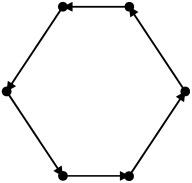Referrals and information flow in networks increase discrimination: A laboratory experiment |
| |
| Affiliation: | 1. MTA TK “Lendület” Research Center for Educational and Network Studies (RECENS), Centre for Social Sciences, Hungarian Academy of Sciences, Tóth Kálmán u. 4., 1097 Budapest, Hungary;2. Department of Social Studies and Centre for Data Intensive Sciences and Applications, Linnaeus University, Universitetsplatsen 1, 35195 Växjö, Sweden;3. Department of Economics and Management, University of Brescia, Via San Faustino 74B, 25122 Brescia, Italy |
| |
| Abstract: | 
Referrals and information flow distort market mechanisms of hiring in the labor market, but they might assist employers under asymmetric information in finding better alternatives. This paper investigates whether an impartial information flow between employers in a cyclic network structure could generate more discrimination than when no information is exchanged between employers. We set up an artificial labor market in which there was no average quality difference between two categories of workers. We asked participants to play the role of employers and examined the partiality of their hiring choices. Results showed that discrimination was prevalent in all conditions. Higher standards by the employers for the quality of workers increased discrimination as did the presence of referrals from workers. Unexpectedly, impartial information flow in a cyclic network of employers did not help to decrease discrimination. We also showed that these mechanisms interact with and subdue each other in complex ways. |
| |
| Keywords: | Hiring discrimination Referrals Recommendations Information networks Labor market Laboratory experiment Quality standards |
| 本文献已被 ScienceDirect 等数据库收录! |
|

